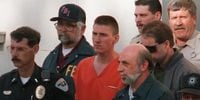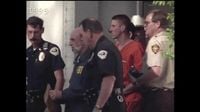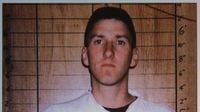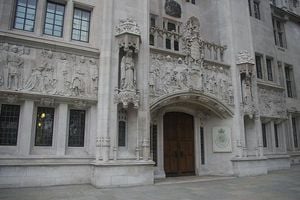On April 19, 1995, a tragic event unfolded in Oklahoma City that would forever alter the landscape of American domestic terrorism. At precisely 9:02 a.m., a truck bomb detonated outside the Alfred P. Murrah Federal Building, killing 168 people, including 19 children, and injuring hundreds more. This horrific act was perpetrated by Timothy McVeigh, an ex-Army soldier who harbored deep anti-government sentiments.
In the days following the bombing, attorney Stephen Jones received a life-changing phone call from a U.S. district judge asking him to represent McVeigh. Jones, who was already known for taking on controversial cases, accepted the challenge, believing strongly in the rights of defendants, no matter how heinous the crime. "I believe strongly in the rights of people charged with crimes, no matter how serious the crime is or how terrible their character, everyone is entitled to a vigorous defense," Jones stated in an interview.
Jones's commitment to his client was unwavering, despite the overwhelming public disdain for McVeigh. He spent two and a half years preparing for the trial, reviewing a staggering amount of evidence, including "17,000 statements, 100 volumes of photographs, 359 hours of videotapes, [and] 149 hours of audiotapes." The number that haunted him the most was 168, representing the lives lost in the bombing.
McVeigh, who was arrested shortly after the bombing for a traffic violation, had a tumultuous history that fueled his actions. After serving in the Gulf War, he became increasingly disillusioned with the U.S. government, particularly after witnessing the FBI's violent confrontations at Ruby Ridge and Waco. These events, which left many dead, ignited a fire in McVeigh that culminated in the Oklahoma City bombing.
In a documentary titled "Oklahoma City Bombing: American Terror," viewers gain insight into McVeigh's motivations and the chaos that ensued on that fateful day. The film features interviews with law enforcement officials and survivors, shedding light on the human impact of the tragedy. For instance, Amy Downs, who was buried alive under the debris, recalls, "I was still in my chair upside down buried in about 10 feet of rubble." Her harrowing experience serves as a reminder of the bombing's devastating effects.
The documentary also highlights the investigation that led to McVeigh's capture. After the bombing, a piece of the truck was found, which allowed authorities to trace it back to a rental location. Witnesses provided sketches that ultimately identified McVeigh, who was already in custody for driving without a license plate. His arrest was a stroke of luck for law enforcement, as they were still piecing together the evidence against him.
As the investigation unfolded, McVeigh's co-conspirator, Terry Nichols, was also implicated. Nichols, who had assisted McVeigh in assembling the bomb, was eventually convicted of 161 counts of murder and is serving a life sentence without the possibility of parole. Meanwhile, Michael Fortier, another associate, testified against McVeigh in exchange for a plea deal and was released in 2006.
During the trial, Jones faced immense pressure and criticism. He noted, "For lack of a better term, I would say the elites supported me, but the average Joe Sixpack was probably critical." He felt that the backlash primarily came from influential figures in Oklahoma, while the general public understood his role as a defense attorney.
Ultimately, McVeigh was convicted on June 2, 1997, after a trial that lasted several weeks and was characterized by intense media scrutiny. He was sentenced to death, and despite his defense team's efforts, his appeals were unsuccessful. McVeigh was executed by lethal injection on June 11, 2001, at the age of 33. His last words were a poem, "Invictus," which he handed to the prison warden prior to his execution.
The Oklahoma City bombing remains the deadliest act of domestic terrorism in U.S. history, and its effects are still felt today. Families of the victims continue to grapple with their loss, and many survivors have transformed their grief into activism. Renee Moore, who lost her six-month-old son, Antonio Cooper, in the bombing, expressed her belief that McVeigh got off easy with his execution. "He’s taking the easy road out," she said. "We have to live with this; he doesn’t."
In the wake of the tragedy, the Oklahoma City community showed remarkable resilience. Many residents rushed to the scene to help, risking their own safety to save others. Dr. Carl Spengler, who provided emergency care at the site, recalled a surgeon who handed his wallet to a colleague, saying, "If this collapses, give that to my wife." Such acts of bravery exemplified the spirit of Oklahomans during one of the darkest days in American history.
As the 30th anniversary of the bombing approaches, new documentaries and retrospectives aim to honor the victims and highlight the importance of remembrance. The Netflix documentary "Oklahoma City Bombing: American Terror" and NatGeo's "Oklahoma City Bombing: One Day in America" both explore the events surrounding the bombing and the ongoing impact on survivors and families. These projects serve as a reminder of the fragility of life and the enduring strength of community in the face of unimaginable loss.
The Oklahoma City bombing not only changed the lives of those directly affected but also reshaped national policies regarding domestic terrorism and security. It stands as a stark reminder of the consequences of extremism and the need for vigilance in protecting democratic values.









